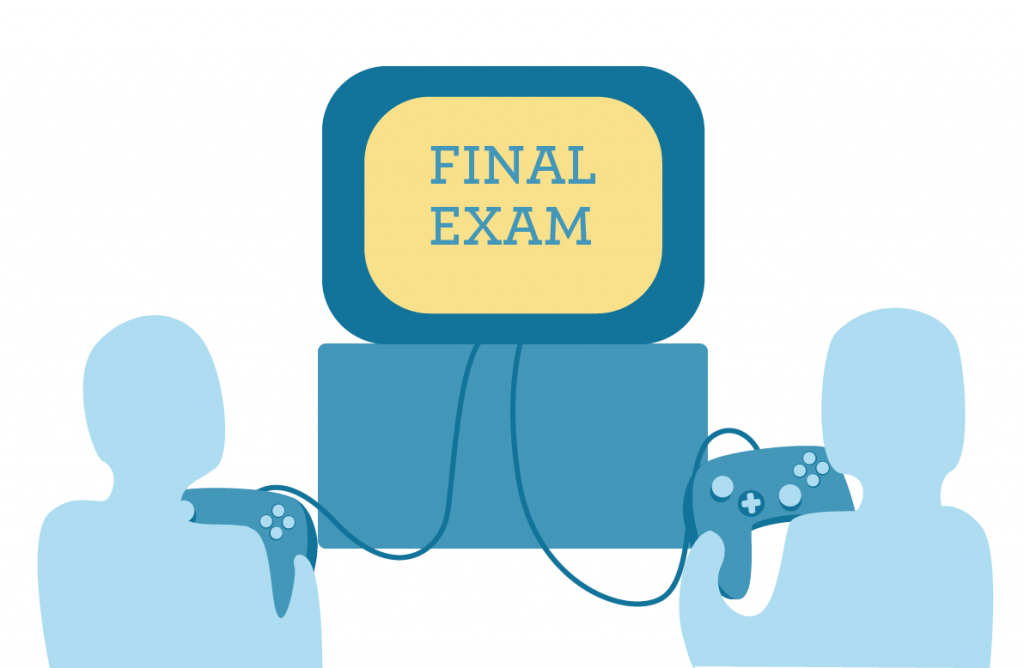Reimagine Learning
5 Reasons Why Game-based Assessment is the Hottest New Trend in Education

Game based-assessment, or GBA, has been receiving a great deal of attention in both gaming and education circles. Unlike the tests that give students sweaty palms and sleepless nights, game-based assessments provide a fun new way of effectively examining learning. Based on our research and experience designing game-based assessments, we have found 5 core reasons why the next generation of students will be taking their tests with game controls instead of pencils.
#1: Games Encourage Failure
This may seem counterintuitive, but one of the great benefits of games is that they encourage a player to make mistakes with relatively low risk inside a safe environment. It is through successive failures that students often experience their most profound learning achievements. By tracking a student’s failures and resulting behaviors in a game, we can understand how well a student is understanding and applying concepts AND we can evaluate important factors such as persistence and problem-solving ability.
#2 Games Reward Success
Inside a game environment, every victory, large or small, is rewarded. In a game designed for assessment, these rewards offer indicators of “learning moments” – times when a student has mastered a key learning objective or applied a new skill. In-game rewards can come in many forms (e.g. unlocking a new character or winning a new tool) and also serve to motivate students to keep playing. Say goodbye to test fatigue!
#3 Games are Naturally Differentiated
I’ll never forget the time I played our Martha Madison physical science game with a ten-year-old who was on the spectrum of autism. This young man had almost no functional expressive language, but the game provided a vehicle in which he could demonstrate phenomenal problem-solving skills and understanding of complex science concepts. Games meet learners where they are, and as assessments, they show us things that a paper or oral exam never could.
#4 Games Provide Feedback
A hallmark of a good formative assessment is that it provides timely and useful feedback. Feedback helps provide learning-specific information that helps students know when to “course correct” or move on to more difficult material. Excellent games provide continuous, tailored feedback without the need for outside intervention from a proctor or instructor.
#5 Games Can Transcend the Real World
Want to see how well a student can run a city, invent a machine, apply knowledge of force diagrams in real time, debate a president, or build a plant cell? While these are all valuable opportunities to evaluate student learning, they are often difficult (or downright impossible!) to implement in real life. Games provide assessment situations that transcend the traditional word problem or written project, by offering unlimited resources and removing many of the barriers imposed by the real world.
We are so excited to see what the next several years brings in terms of game-based assessment. To learn more about game-based assessment in our Martha Madison games, please email Brian Regan at Bregan@secondavenuelearning.com
Do you use games as an assessment tool? Contact John Jordan (585-419-6530, ext. 114) to discuss assessment tools and we’ll send you our latest Voter’s Ed app FREE!
Next week, watch for How Real Teachers Us Game-based Assessment Every Day.
Categories
- Accessibility (5)
- Blog (48)
- E-Learning and Serious Games (16)
- Election Edge (4)
- Guest Blogger (1)
- Learning Design (11)
- News (6)
- Primary Sources (5)
- Remote Learning (3)
- Second Avenue Voices (13)
- Teacher Tools (10)
- Technology (4)
- Uncategorized (9)
- Webinar (11)
